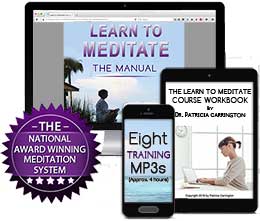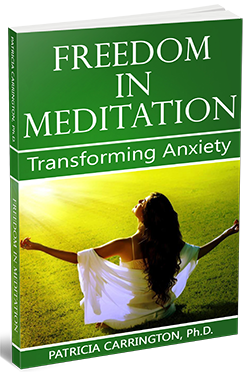 Meditation and Dreams
Meditation and Dreams
A study conducted at Princeton University by Christopher Ross and Hilary Brown investigated a group of Transcendental Meditation (TM) meditators and a group of students who regularly practiced Progressive Relaxation.1 They compared those who ‘regularly practiced’ with a group of students who rarely or never practiced these same techniques. The question they sought to answer was whether regular meditation and/or relaxation lead to changes in the content of people’s dreams. Dreams were chosen because they tend to be a very stable measure of personality; that is, they reflect basic conflicts and coping mechanisms which remain the same over long periods of time.
Many kinds of changes had been reported in meditators over periods of only three months. These researchers set out to study changes over this same time and used a two-week daily dream diary from these subjects before they had learned their techniques of TM meditation or progressive relaxation, and another such diary after they had been practicing their respective techniques for three months. The subjects also kept daily mood checklists during the study.
The researchers then scored the dreams for forty-eight different aspects, or ‘variables’, which ranged from such simple characteristics as the number of characters in the dream or amount of verbal or physical aggression, to the presence of anxiety, self-reflection, bizarre imagery, or ‘environmental threat’ – among others.
What Ross and Brown found was that the overwhelming majority of these dream scores showed no change whatever, either in the regular meditators and regular progressive relaxers or in the group that did not practice their techniques regularly at all. This occurred even though a number of the subjects reported feeling much better on follow-up questionnaires. Those that regularly practiced scored as considerably ‘less anxious’ on a written test which measured their level of anxiety, and their daily mood checklists showed that they were ‘happy’ much more often than they used to be before practicing meditation.
|
MEDITATION AUDIO LESSON Meditation for Greater Independence Learn why people who meditate gain greater inner strength and independence in this audio mediation clip from Dr. Patricia Carrington, originator of the CSM method of meditation.
|
What does this mean? Did nothing happen to these subjects after they commenced to meditate or relax regularly? Does the lack of change in their dreams mean that those dramatic improvements in the lives of meditators which are so often reported to use may just be ‘all in the imagination’?
Decidedly it is not. Something had happened to those subjects who had practiced their techniques regularly; they were less anxious and happier. Despite these changes, however, regular meditation and relaxation left untouched other deeper levels of their personalities.
A 2018 study, conducted in the Dream and Nightmare Laboratory of the Université de Montréal, highlighted in Psychology Today, showed that dream content measures remained fairly consistent between both the control group and the meditators.
This finding actually correlates to a study done in 1948, conducted by psychologist Calvin Hall, one man’s dreams collected over a fifty-year period, from early adulthood to death, were studied to see how consistent his dream content was over the years. Hall found that each dream category that he studied had remained essentially unchanged for fifty years! 2
In studying the dreams of other individuals, Hall also found that whenever a significant change in dream content was apparent, this generally represented a similarly profound change in the individual’s behavior and personality. In other words, dream life does not easily change, which basically coincides with the above mentioned study.
However, one difference revealed in the 2018 study was that meditators had longer dreams with friendlier interactions within their dreams than did the control group. However, the meditators also experienced less “lucid dreaming” than the control group, but the researchers suggest it may be due to the form of meditation that was practiced; Vipassana meditation, which focuses primarily on the experiences of the body.
Other studies have shown changes with meditation on tests measuring self-actualization, field independence and other aspects of personality. None of these studies, however, employed the ‘projective techniques’ which measure deeper layers of the personality, or dreams. The work of Ross and Brown and of Zevin (using the TAT) 3 suggests that it is these deeper levels of personality which often resist change through meditation.
Meditation and Personality
My late husband and I noticed in our meditating patients the same kind of limitations seen in the Princeton study. After we began publishing articles on meditation, patients who were long-term meditators frequently came to us seeking therapists familiar with meditation. Some of these people had years of intensive practice in one or another of the commonly used meditation techniques and some were even teachers of meditation.
We found that often these long-term meditators reported that they had become more emotionally responsive, tranquil, insightful, and energetic after commencing meditation. Despite these gains, however, they came to us because of unresolved emotional conflicts revolving around such problems as personal relationships, marriage and career, and because of various disturbing symptoms. In other words, although they had changed through intensive practice of meditation in certain important respects, they had not changed in others.
Some other experimental evidence bears on this question. Its results are in agreement with Ross and Brown and our clinical observations. When Dr Leon Otis of the Stanford Research Institute administered personality tests to TM meditators and to a control group of non-meditators who were signed up to learn the technique, he discovered that TM had no discernible effects on self-image over the year’s test period for those people who continued to practice it in his experiment.4 Otis concluded that the data ‘supports the notion that TM does not alter basic personality characteristics’, a conclusion quite in line with that of the Princeton study.
Just as the latter found that certain behavior and moods did change with meditation, however, so in his study Otis also found that the TM group ranked significantly higher in enjoyment of life, restfulness of sleep, happiness, energy level, sexual adjustment, and creativity than did the control group. These changes occurred despite the fact that deeper personality characteristics seemed to show no difference.
Taken together, the research studies and clinical observations suggest that while the effects of meditation can be impressive, it is doubtful whether meditation can change personality in any basic sense. To effect truly deep change meditation may need to become part of a more general change in the way one lives one’s life. However, practical meditation does reduce tension and improve functioning on a number of levels. This may lead to some startling changes in behavior and the way the meditator views oneself even if deep-seated emotional problems remain untouched.
Related Product:
 Clinically Standardized Meditation (CSM) is a clinically sensitive meditation method used by numerous individuals, medical institutions, and organizations, worldwide. The main advantages of CSM (and also its difference to other meditation techniques) are its simplicity, its flexibility and its sensitivity to the individual intentions and inclinations of those who learn it. CSM is extremely permissive, which makes it easier to personalize and internalize its experience.
Clinically Standardized Meditation (CSM) is a clinically sensitive meditation method used by numerous individuals, medical institutions, and organizations, worldwide. The main advantages of CSM (and also its difference to other meditation techniques) are its simplicity, its flexibility and its sensitivity to the individual intentions and inclinations of those who learn it. CSM is extremely permissive, which makes it easier to personalize and internalize its experience.
1. C. A. Ross, ‘The Effect of Two Relaxation Techniques on Mood, Sleep and Dreams’ (senior thesis, Princeton University, 1974).
2. C. Hall, ‘Frequencies in Certain Categories of Manifest Content and Their Stability in a Long Dream Series’, American Psychologist, 3 (1948), p. 274.
3. W. A. Zevin, ‘Effects of Transcendental Meditation on Loneliness Anxiety as Measured by the TAT’ (unpublished paper, Department of Psychology, Princeton University, 1974).
4. L. S. Otis, ‘The Psychobiology of Meditation: Some Psychological Changes’ (paper presented before the Annual Meeting of the American Psychological Association, Montreal, 1973).







Pingback: Meditate Yourself Happy: Steps You Should Take Towards bBlance - High Style Life